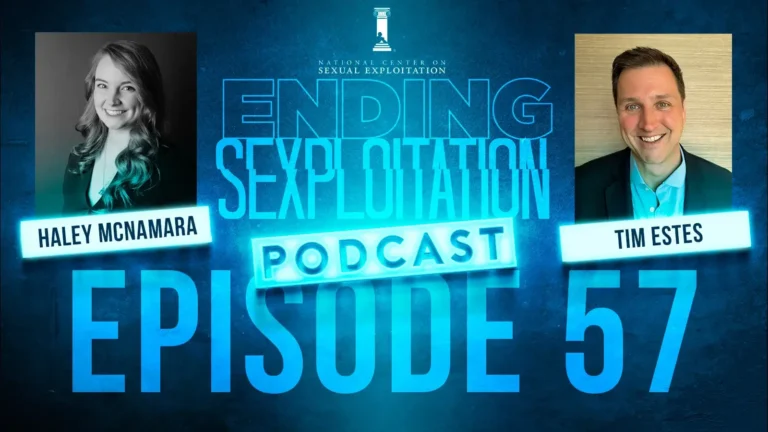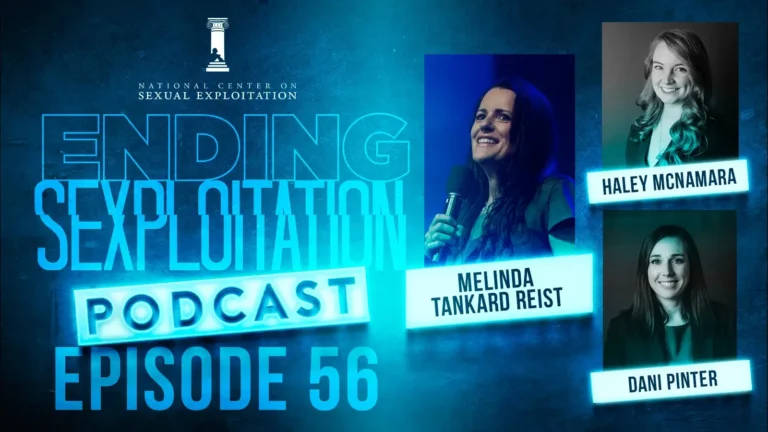Marco (pseudonym) was 11 years old when he was first exposed to pornography. He watched pornography whenever he got the chance, even at school and in other public places. As a young man, he mimicked what he saw in pornography by pretending to have sex with a prostituted woman.
As time went by, he started watching and listening to more extreme pornography. Pornography users often feel the need to increase the intensity of pornography they watch in order to get the same sexual arousal. Eventually Marco felt he needed something even more intense, so he visited an erotic massage business, went to many strip clubs, and hung around brothels.
After over a decade of this, Marco realized he was addicted to pornography and wanted to quit using it. It’s not surprising that he became addicted; he encountered it for the first time at 11 years old, and adolescents’ brains are more susceptible to addictions and other developmental effects than an adult’s brain would be.
Marco is only one example of a child who was exposed to pornography, and how that led to a lifetime of addiction and participating in sexual exploitation.
Research Spotlight: “Sexual Violence as a Sexual Script in Mainstream Online Pornography”
Pornography Use is a Gateway to Other Forms of Sexual Exploitation
People who are exposed to violent pornography as children are more likely to engage in aggressive sexual behavior as adults. And children who are exposed to pornography depicting rape and violence are also nearly three times more likely to experience sexual exploitation. Thus, childhood exposure to violent pornography can increase the risk that children will become sexual aggressors later in life and the risk that they will be sexually exploited. We don’t want our kids to end up on either side of that equation.
Pornography use is linked to a host of issues like child-on-child harmful sexual behaviors, physical and sexual violence, and selling and buying sex. These are all forms of sexual abuse and exploitation.
Going to the Root of the Problem: Mass-Scale Prevention
Since pornography use leads to so many other forms of sexual abuse and exploitation, and early pornography exposure is common among people who have sexually offended, it makes sense to go straight to the root of these problems by preventing pornography exposure in the first place.
NCOSE is dedicated to going to the root of problems and preventing harm for as many people as possible. We call this strategy “mass-scale prevention.” Mass-scale prevention of sexual exploitation requires preventing exposure to pornography, especially among children.
So, what are some ways to prevent children from being exposed to pornography?
Download this resource about the harms of pornography on children
Tactics to Prevent Childhood Pornography Exposure
Currently, two legislative solutions exist to address the issue of children being exposed to pornography:
1) Safer Devices Legislation would require all smartphones and tablets activated for minors to automatically enable existing filters for sexually explicit content. Children will receive the protection they so urgently need, without getting in the way of adults. Research shows that the vast majority of people leave their devices on default settings, which means that, although devices already have filters for sexually explicit content, they are not turned on for most children.
2) Age verification legislation requires pornography websites to verify users are over 18. In the same way that a person buying a pornographic magazine or DVD must show proof that they are over 18, we must bring these same protections to the online world. Accurate and privacy-protective methods of age verification already exist. You can learn more about these methods here.
Implementing these legislative solutions seems like a no-brainer for preventing child exposure to pornography. However, the pornography industry has routinely pushed back against efforts to protect children.
Talk Today, Safer Tomorrow
The Pornography Industry is Fighting to Strike Down Age Verification Laws
Free Speech Coalition v. Paxton is a case up for review by the Supreme Court. The Free Speech Coalition (FSC) is an organization that lobbies on behalf of the pornography industry. This organization challenged a Texas law requiring age verification to ensure users are at least 18 years old on websites with large amounts of “sexual material harmful to minors” (such as pornography websites).
FSC v. Paxton is an opportunity for the Supreme Court to rule on whether or not protecting children from sexual material that could be harmful to them is constitutional. The Court’s decision on this case will impact the ability of elected officials and communities to protect children from technology-distributed pornography.
The NCOSE Law Center is filing a brief in support of Texas’s age verification law. Alongside numerous allies, we are fighting for states’ right to protect children from pornography—content that is proven in research to have devastating effects on children and society as a whole.
ACTION: Call on Your State Legislators to Protect Children from Pornography!
Does your state have legislation in place to protect children from pornography? Take action below, asking your state legislators to consider Safer Devices Legislation or Age Verification Legislation.



